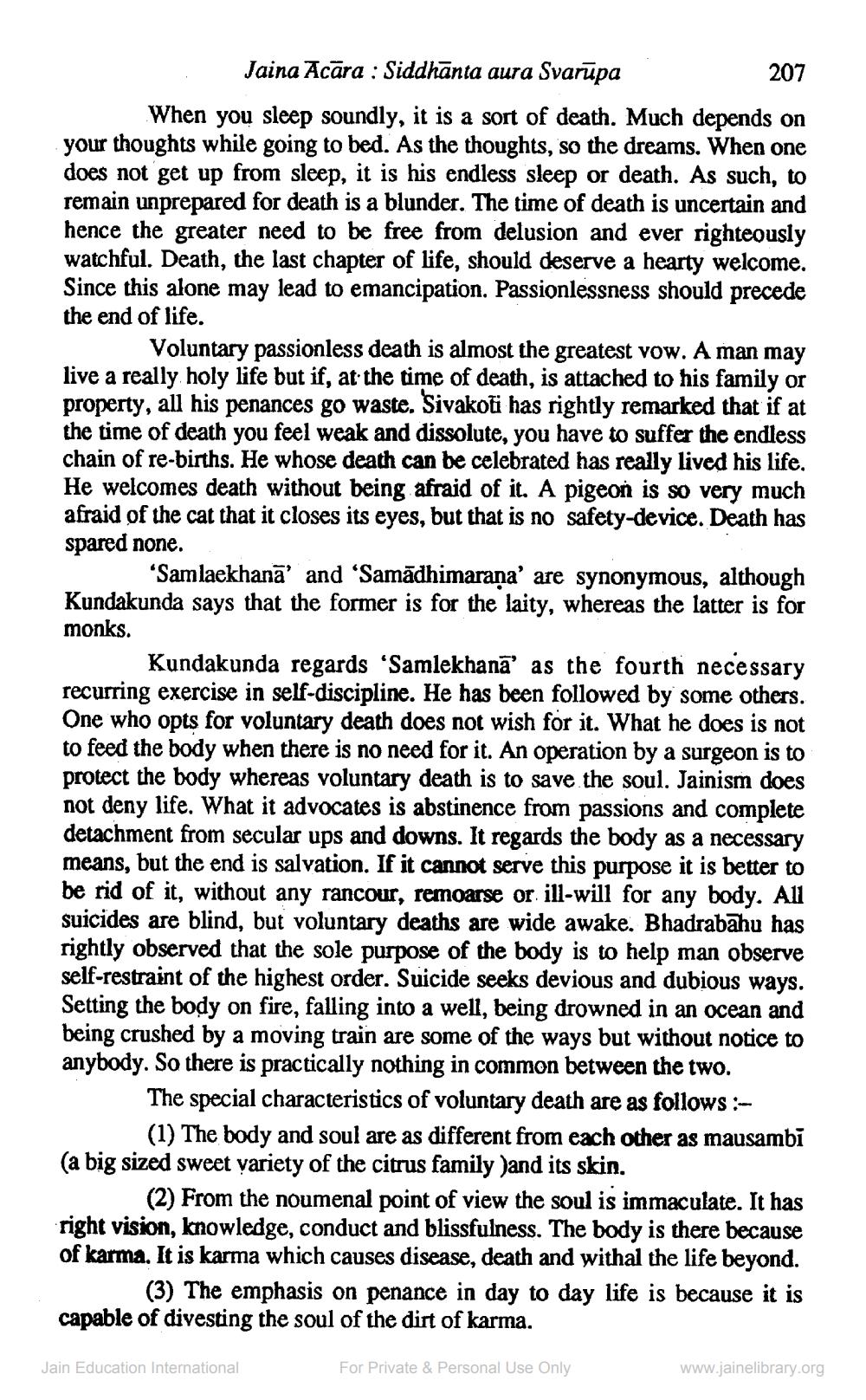________________
Jaina Acara: Siddhanta aura Svarupa
207
When you sleep soundly, it is a sort of death. Much depends on your thoughts while going to bed. As the thoughts, so the dreams. When one does not get up from sleep, it is his endless sleep or death. As such, to remain unprepared for death is a blunder. The time of death is uncertain and hence the greater need to be free from delusion and ever righteously watchful. Death, the last chapter of life, should deserve a hearty welcome. Since this alone may lead to emancipation. Passionlessness should precede the end of life.
Voluntary passionless death is almost the greatest vow. A man may live a really holy life but if, at the time of death, is attached to his family or property, all his penances go waste. Sivakoti has rightly remarked that if at the time of death you feel weak and dissolute, you have to suffer the endless chain of re-births. He whose death can be celebrated has really lived his life. He welcomes death without being afraid of it. A pigeon is so very much afraid of the cat that it closes its eyes, but that is no safety-device. Death has spared none.
'Samlaekhana' and 'Samadhimarana' are synonymous, although Kundakunda says that the former is for the laity, whereas the latter is for monks.
Kundakunda regards 'Samlekhana' as the fourth necessary recurring exercise in self-discipline. He has been followed by some others. One who opts for voluntary death does not wish for it. What he does is not to feed the body when there is no need for it. An operation by a surgeon is to protect the body whereas voluntary death is to save the soul. Jainism does not deny life. What it advocates is abstinence from passions and complete detachment from secular ups and downs. It regards the body as a necessary means, but the end is salvation. If it cannot serve this purpose it is better to be rid of it, without any rancour, remoarse or ill-will for any body. All suicides are blind, but voluntary deaths are wide awake. Bhadrabahu has rightly observed that the sole purpose of the body is to help man observe self-restraint of the highest order. Suicide seeks devious and dubious ways. Setting the body on fire, falling into a well, being drowned in an ocean and being crushed by a moving train are some of the ways but without notice to anybody. So there is practically nothing in common between the two.
The special characteristics of voluntary death are as follows:
(1) The body and soul are as different from each other as mausambi (a big sized sweet variety of the citrus family )and its skin.
(2) From the noumenal point of view the soul is immaculate. It has right vision, knowledge, conduct and blissfulness. The body is there because of karma. It is karma which causes disease, death and withal the life beyond. (3) The emphasis on penance in day to day life is because it is capable of divesting the soul of the dirt of karma.
For Private & Personal Use Only
Jain Education International
www.jainelibrary.org




